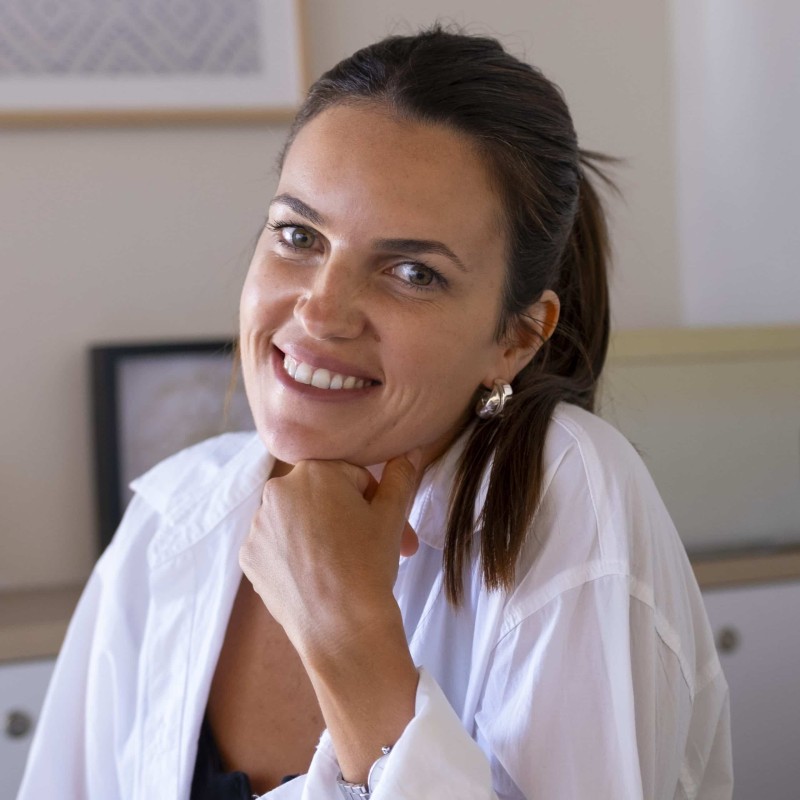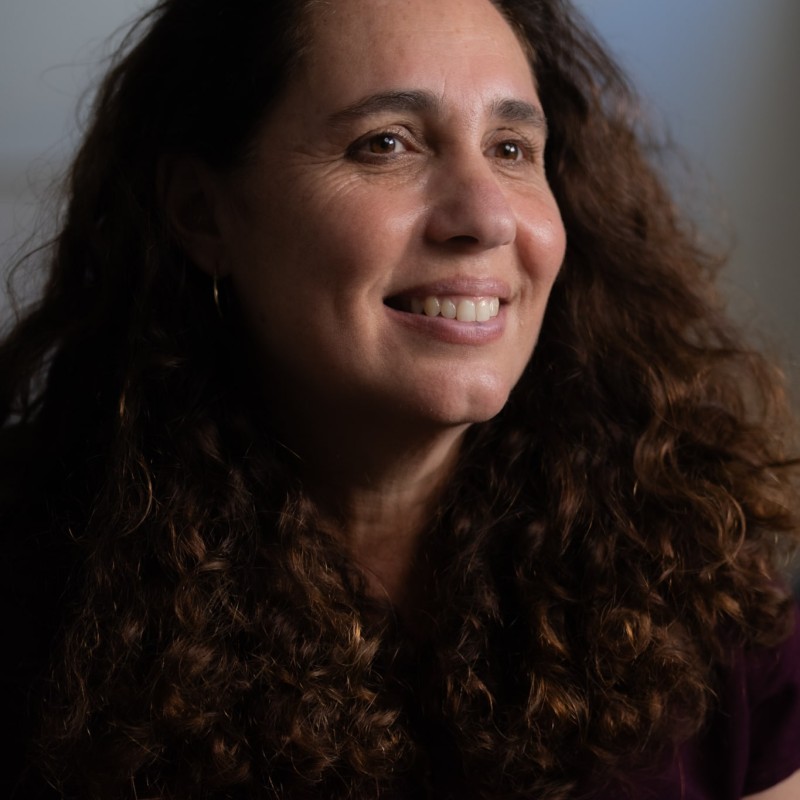
What is knowledge? What is the difference between facts and information? Who invented the economy? What is the relationship between media and government? How do new technologies change us, how do they work, and how can we use them to create and make an impact? What connects the individual to the community and how can this connection be improved?
Ankori Media, a school for critical and social thinking for grades 7-12, offers a learning process driven by these questions – and the many answers they may yield. Ankori Media focuses on the here and now, on developments in the digital, media, and information spheres, providing learners with the analytical skills and cultural infrastructure to observe reality and orient themselves within it.
The school and its staff of educators are equipped to listen and attend to the different voices of pupils and to their social and technological environments, working to develop and hone their skill set and introduce them to new content and domains.
The school curriculum is broader and more in depth than the Ministry of Education standard. We learn and teach all of the core subjects with our own unique approach, ensuring that all pupils are on track to earn a full, high-quality matriculation certificate.
Nowadays, we are flooded with information at an unprecedented speed. But in most cases, we are blind to the mechanisms that determine which information we receive, who and what we believe, and what we perceive as fact or fiction. We also know that investing in teaching pre-gained knowledge is irrelevant, as knowledge is constantly renewed.
Simultaneously, our private world clashes with the trends that change the world at large, creating uncertainty and forcing us to adjust. At the forefront of this change is the young generation, which must learn to navigate, filter, monitor, and act within this “maelstrom.” The schools that prepare the children of today for the world of tomorrow must undergo a significant structural and methodological change in order to readapt, every morning, to the here and now.
So, what did we do about it?
We did not abandon Ministry of Education standards and guidelines, as they are part of the here and now, but rather developed a school and educational model that can constantly absorb and process new content with ever-changing tools. We have selected a team of teachers and educators who know enough to know that they do not always know, or have answers for everything, but do love and know how to learn and teach. They attend to pupils and the questions that arise with a critical, investigative approach, and have the tools to see each child as both an individual and part of the group.

Media is a platform that allows us to adjust the way we learn and teach to a changing reality.
Every day, reality presents challenges that push us to create flexible, fast, critical platforms capable of responding to the environment around us.
What role does technology play?
Technology offers us tools that can shape our thinking and generate new knowledge. Attending Ankori Media is an opportunity to enhance and hone emotional and social skills, develop points of view, and make an impact on society and the environment.
What role does the here and now or reality play?
Reality is an additional platform through which we learn and teach. Social and political events shape the type of content all of us, including children, absorb. Discussing and exploring the here and now cultivates a sense of control and an in-depth understanding of current discourse, helps establish personal points of view, and increases motivation for research and learning.


The school year at Ankori Media is divided into three “periods.” In each period, all core subjects and workshops revolve around a central thematic topic and approach it from different perspectives. Each period (roughly 10 weeks of learning) concludes with a “hackathon” – a 4-day peak event during which pupils research a local or global socio-political challenge and develop a solution to it. They do so by using the tools and skills acquired during the respective “period,” and present the outcome on the final day of the hackathon.
This model allows us to approach standardized Ministry of Education curricula through the lens of the here and now, using diverse, ever-changing media platforms.
What does the week look like?
Ankori Media is in session 5 days a week.
Sun, Mon, Wed, Thurs: 9:00am-3:30pm.
Tues: 9:00am-2:30pm.

While some of our classes are lecture-based, most are conducted as a conversation and discussion with the entire class or in groups, with designated time for independent study and research.
We do not use bells. It is important to us that pupils share the responsibility for managing their time.
We do not have uniforms. We trust that pupils know what is or is not appropriate school attire. If something is unclear, we discuss it. Clothing is another form of self-expression.
We do not assign homework, and if so, then very little.
There are tests, but not many. We have alternative evaluation tools.
Ankori Media conducts numerous workshops with guest lecturers and artists, social skills classes, discussions on current events, social activities, community initiatives, and high-quality annual trips.
Classes at Ankori Media are dual-age, with 25 pupils per class. Each class has a designated homeroom teacher, in addition to our general school counselor.
Core subjects are taught by the experienced teachers of Ankori Ra’anana, who have the tools to help pupils reach their full potential and overcome challenges. Our teachers work in small teams, and have the ability to influence, change, and shape the school experience.
Technological and professional workshops are taught by experts from the media, technology, and communication fields, who were selected for their professional knowledge and added value. The technological-professional faculty is dynamic and diverse, ensuring that learning remains up-to-date and is adaptable to shifting content and technologies.













The Ankori Media admissions process includes an introductory meeting with the school and method and a personal conversation between the prospective pupil and one of our leading staff members, in which we can get to know each other and manage expectations. The introductory meeting allows parents and applicants to get detailed information, ask questions, and decide if they are interested in moving forward with the process.

כתובת: אחוזה 148 ,רעננה
טלפון: 09-7488296
אשת הקשר שלכם היא בשמת לבב-סורקי או מיטל גלר
מייל: bosmat_ls@ankori.co.il
meital_g@ankori.co.il
תענו בבקשה על כל השאלות, שנדע איך לעזור
אנקור – גן ויסודי
סירקין 3, תל אביב
מנהלת: מירי לוי
אנשי הקשר שלכם:
הדס שוהם
ankor@ankor-ankori.co.il
טלפון: 050-313-3703
סטודיו אנקורי
עזה 13, יפו
מנהלת: קארין היימן
אשת הקשר שלכם:
נעה אלישע
studio@ankori.co.il
טלפון: 03-6122313
אנקורי תל אביב
טרומפלדור 30, תל אביב
מנהלת: סיון ליפשיץ
אשת הקשר שלכם:
ענתי אשכנזי כחלון
anati_c@ankori.co.il
טלפון: 03-6204990
אנקורי ירושלים
הרברט סמואל 1, כיכר ציון, ירושלים
מנהל: בועז עילם
אשת הקשר שלכם:
אמירה
amira_b@ankori.co.il
טלפון: 02-6222281
אנקורי ראשון לציון
פיק”א 21, ראשון לציון
מנהל: משה גרדוס
אשת הקשר שלכם:
גליה
galia_h@ankori.co.il
דניאל
danialia_h@ankori.co.il
טלפון: 03-9501888
אנקורי פתח תקווה
אליעזר פרידמן 9, קניון סירקין, פתח תקווה
איש הקשר שלכם:
עדי
adi_yo@ankori.co.il
טלפון: 03-9045353
אנקורי צפון
דרך עכו 6, קרית ביאליק
מנהלת: ורדית הלוי
איש הקשר שלכם:
עופר
ofer_ba@ankori.co.il
טלפון: 04-8491333
אנקורי אשדוד – קורסים
הרצל 1, בניין היוניטרייד, אשדוד
אשת הקשר שלכם:
כרמית – carmit_b@ankori.co.il
אנקורי חיפה – קורסים
הנמל 30, חיפה
אשת הקשר שלכם:
כרמית – carmit_b@ankori.co.il
טלפון: 04-8644464